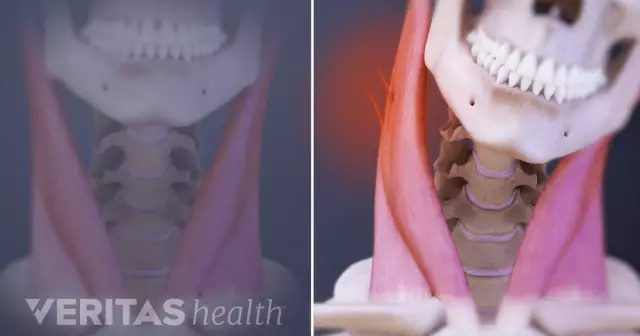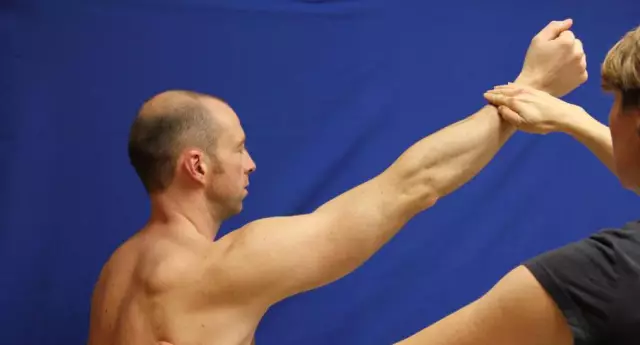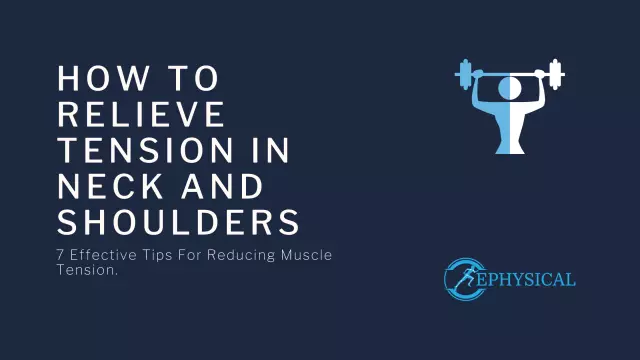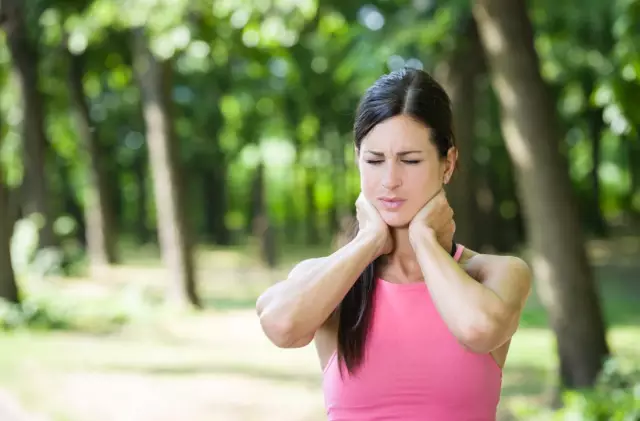- Author Rachel Wainwright wainwright@abchealthonline.com.
- Public 2023-12-15 07:39.
- Last modified 2025-11-02 20:14.
What causes muscle spasm

Human muscle tissue is in constant tension, because the smallest action involves the activity of thousands of muscle fibers. The normal functioning of the muscular system requires elasticity of its tissues, but often after excessive physical exertion, tension in the muscle area remains even after its completion. In some cases, such processes proceed imperceptibly, while in others they give a person prolonged painful sensations and impede his ability to function. Indeed, unlike a spasm, muscle spasm does not pass quickly and can even deprive a person of mobility.
Muscle spasm, causes
Experts distinguish three main causes of muscle spasm:
- Physical injuries of a different nature;
- Prolonged static muscle tension;
- Emotional stress.
All kinds of bruises and injuries are the most common cause of muscle spasm, in which muscle tension occurs in response to pain, contributing to the development of the so-called trigger syndrome. Often this symptom is the result of a birth trauma, since childbirth itself is an extremely traumatic process. The spasm of the neck muscles, received by a person at birth, remains with him for life and interferes with proper nutrition of the brain.
Prolonged static muscle tension, as a rule, is due to the long-term presence of the human body in an uncomfortable position. This muscle tension is common for many office workers and all those who work in a sitting position for a long time. It can occur even when a person constantly carries a heavy bag on one shoulder. That is, if the muscles are in a tense state for a long time, they seem to get used to it and begin to maintain it. Thus, if the affected area does not relax and the person does not take action, muscle spasm in this area can bother him constantly.
Often the cause of muscle spasm is strong emotional stress. Therefore, it should be remembered that all kinds of negative experiences very quickly provoke this ailment. This is due to the fact that the body regards the occurrence of a stressful situation as a state in which it is necessary to mobilize resources. So, certain hormones are released into the blood stream, the heartbeat increases, the processes of the digestive system become more difficult, and muscle tone increases. As soon as the emotional stress subsides, the body, as a rule, begins to return to its usual state. However, sometimes such relaxation does not occur, and muscle spasm due to a stressful situation becomes chronic.
Often the cause of muscle spasm is such a common disease as osteochondrosis and its various manifestations. Most often, these are herniated intervertebral discs and protrusion.
Drugs that relieve muscle spasms
You need to know that muscle spasm does not occur by itself: it is the body's response to pain. Therefore, before examining how to relieve muscle spasm, it should be noted that its elimination also involves getting rid of pain. That is, relieving muscle spasms consists of three important factors:
- Providing complete rest to the affected area of the body;
- Elimination of pain with the help of general anesthetic drugs, as well as, in some cases, local action using injections into the affected area;
- The use of pharmacological drugs that relieve muscle spasm and have a relaxing effect.
Of course, many people take analgesic pain relievers to relieve pain, and use other medications to relieve muscle spasms. But it should be noted that more often doctors prescribe combined drugs that relieve muscle spasm and pain at the same time. These drugs are called antispasmodics. Among them, the most effective ones can be noted:
- Trigan;
- Spazmalgon;
- Baralgin;
- No-shpa;
- Dibazol.
These drugs act directly on muscle cells, which contributes to the rapid weakening of spasm, and, consequently, pain. However, it should be said that for many diseases of the musculoskeletal system, it is better to take relaxants, which are more effective in relieving skeletal muscle spasms. At the same time, before taking such drugs that relieve muscle spasm, you need to consult a doctor: they usually have many side effects.
Muscle spasm, treatment

Treatment of muscle spasms, in contrast to taking the above drugs, involves not only getting rid of pain and discomfort, but also the causes of their occurrence. Therefore, you need not only to know how to relieve muscle spasm, but also to establish the diagnosis that provoked it in order to take the necessary measures.
Non-steroidal anti-inflammatory drugs are often equated with analgesics, although this is incorrect, since their mechanism of action on pain is completely different. The anti-inflammatory and decongestant properties of non-steroidal drugs not only relieve pain, but also treat their cause (inflammation), in contrast to analgesics. That is why they have a stronger effect.
Treating muscle spasms with non-steroidal anti-inflammatory drugs can only last 1 to 2 days. However, it should be noted that a contraindication to the use of such drugs, in addition to individual intolerance to its components, as a rule, are various diseases of the gastrointestinal tract. In the presence of diseases such as a stomach or duodenal ulcer, the use of non-steroidal drugs is strictly contraindicated.
Experts say the safest method of using such drugs is to use them in the form of rectal suppositories. Often, a course of several days relieves muscle spasms.
Found a mistake in the text? Select it and press Ctrl + Enter.






